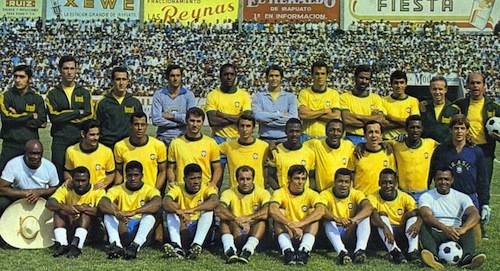Excessive superstar talent can be detrimental to sports teams and the boardrooom, says a study published in the journal Psychological Science. After a certain point, adding more superstar talent can result in poorer overall team performance, the researchers found.
Team leader, INSEAD Professor Roderick Swaab, Michael Schaerer, also of INSEAD, Adam Galinsky of Columbia University, Eric Anicich of Columbia Business School, and Richard Ronay of VU University, demonstrated that when too many players with top talent are present, team members may be less willing to coordinate, thus compromising effective teamwork.
Swaab and colleagues gathered and analyzed data from the 2002-2012 Major League Baseball (MLB) and National Basketball Association (NBA) seasons, and the 2010 and 2014 FIFA World Cup qualifying periods.
The team found that the majority of people assume the opposite, and believe that the more talent there is the more successful the team becomes.
The too-much-talent effect
Professor Swaab said:
“Most people believe that the relationship between talent and team performance is linear – the more their team is packed with talent, the better they will do. Yet our latest research documenting a ‘too-much-talent effect’, reveals that for teams requiring high levels of interdependence, like football and basketball, talent facilitates team performance… but only up to a point.”
“Beyond this point, the benefits of adding more top talent will decrease and eventually hurt the team performance because they fail to coordinate their actions.”
The study suggests that the too-much-talent effect emerges only in sports where a high level of interdependence between players is required. For baseball and other more individualistic sports, piling on excessive superstar talent to a team does not appear to undermine performance.
So, while fans may currently rejoice in their “big three” – Chris Bosh, Dwyane Wade and LeBron James – the research team cautions them to remember the Heat’s NBA title loss in 2011 to the Dallas Mavericks, which was built around Dirk Nowitzki, the sole star player.
While Maverick team members were complementing each other’s strengths, the new Miami superstars were jostling for the spotlight, and ended up losing.
Regarding superstar selections for the current FIFA World Cup tournament, Swaab said:
“As the FIFA World Cup 2014 draws near, we expect to see plenty of team-sheets boasting impressive lineups with top talented players. However, coaches that simply select their side with superstars may, contrary to popular belief, be the ones taking an early exit from Brazil!”
Can this occur in the boardroom?
While team managers from the FIFA World Cup, MLB and NBA should heed the study’s findings, does the same apply to the boardroom?
Swaab explains:
“Like sports teams, teams in organizations vary in their levels of interdependence. When team success merely depends on the accumulation of individual performance (e.g. sales teams), hiring and staffing could simply focus on getting the most talented individuals on board.”
When the team depends on high levels of interdependence for success, such as strategy teams, and their willingness to coordinate is low, there is a risk of poorer overall performance.
“When interdependence between team members is high, organizations could either hire a better mix of top talent and non-top talent and/or invest more in training to formalize roles, ranks, and responsibilities,” the researchers say.
In business as in sports, there are misguided perceptions regarding the link between top talent and performance, Swaab explains. “Selection decisions in organizations tend to produce a too-much-talent effect,” he added.
Brazil’s 1970 FIFA World Cup squad, which was bursting with superstar talent, must have been an exception.


